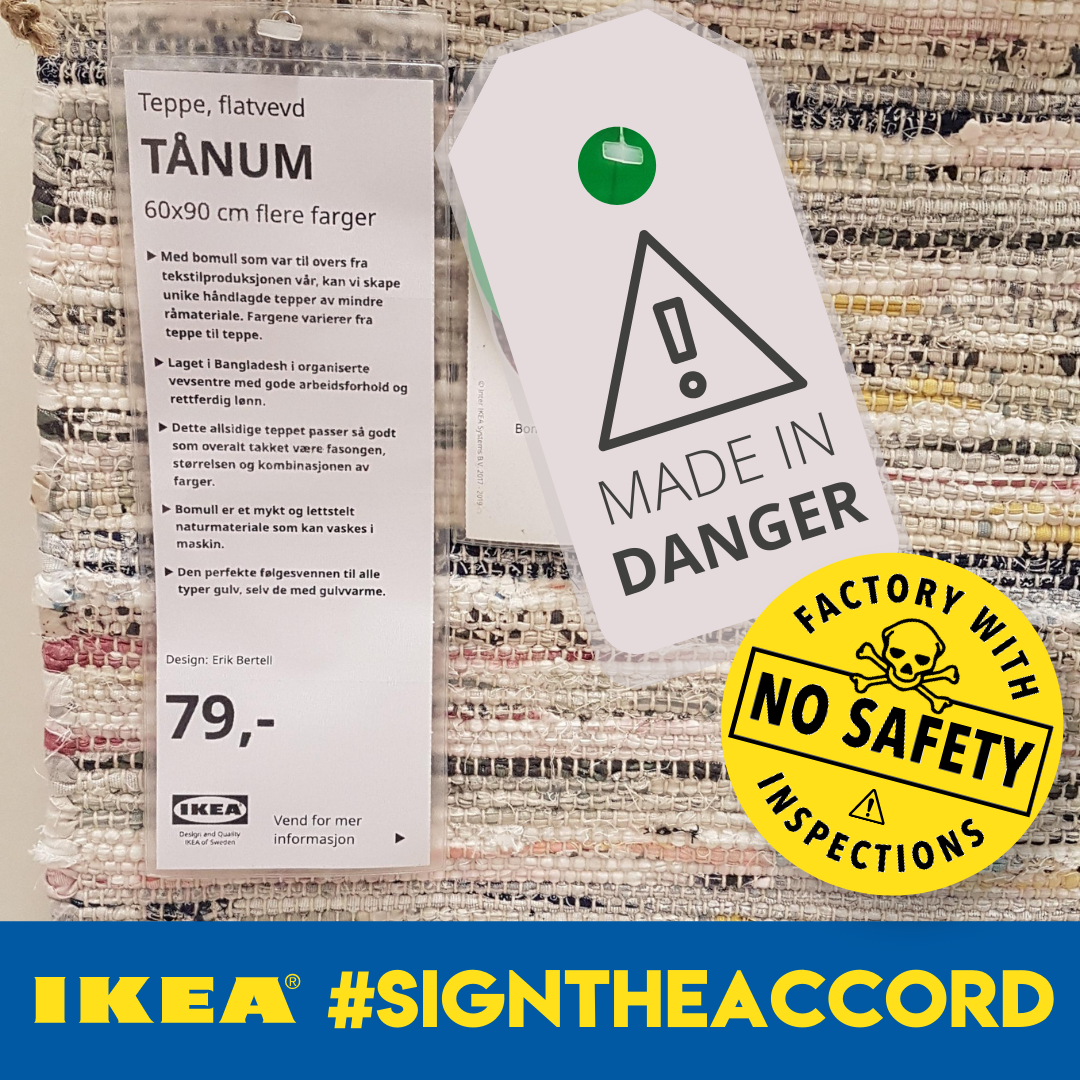
Nine years since Rana Plaza, IKEA and Levi's are freeriding on efforts to make factories safe
Nine years ago, on 24 April 2013, the Rana Plaza building in Bangladesh collapsed, killing 1,138 people and exposing the incredibly unsafe labour conditions for factory workers in the garment sector. Today our thoughts are with all those that had to live through this terrible, preventable tragedy, as well as with the families of those who did not survive.
Nine years on, the struggle for safe factories continues, as some major garment and textile brands still continue to refuse to put their workers’ safety first. The Clean Clothes Campaign network marks this day by calling upon all companies that have not yet done so to sign the International Accord for Health and Safety in the Textile and Garment Sector.
Several widely known brands, such as Levi’s and IKEA, have over the past nine years refused to join the safety mechanism that was created in response to the collapse. This programme is now in its third iteration as the International Accord. 171 brands sourcing from Bangladesh have signed this agreement, including fast fashion giants like H&M, Inditex (Zara), and Fast Retailing (UNIQLO). By refusing to join and pay into the programme, but still sourcing from the factories that are being improved by this programme, Levi’s and IKEA are freeriding on the efforts of these other brands. Our research into these factories shows how both brands have been profiting from progress made possible by the programme that they have failed to support both financially and politically.
In one factory, where IKEA had been present since 2007, the first inspection since the Rana Plaza collapse showed how many safety violations had been overlooked by IKEA’s internal system. This included lack of fire-rated doors, presence of locks on some of the exit doors, as well as cracks in the walls. Even though the 2008 version of IKEA’s monitoring programme explicitly identified faulty electrical wiring as a health and safety risk to be avoided, the 2014 inspection identified lacking insulation of electrical wires. Many of these issues were resolved in the years after, without IKEA contributing to the programme leading on this progress.
In one of the factories where Levi’s has been sourcing from since 2011 engineers noted corrosion in columns upholding the multi-storey building and found the electrical systems of the factory to be in a dismal state without proof of regular inspections. All these items were remediated in the three years after without Levi’s contributing to the programme that enabled this progress.
To ensure that crucial safety work can continue, it is vital that all brands sourcing from Bangladesh sign the Accord as soon as possible. The Clean Clothes Campaign network therefore calls upon IKEA, Levi’s and all other non-signatories, including Gap, Target, VF Corporation (The North Face), and Canadian Tire to sign the Accord. The call to sign on goes out specifically to brands who failed to sign the International Accord even though they were a buyer at one of the Rana Plaza factories in 2013, such as French supermarket chain Auchan and US retailer Walmart. The factories that these brands source from continue to have many of the same safety risks that were prevalent in the industry before Rana Plaza.
Md. Kamrul Hassan, General Secretary of Akota Garments Worker Federation (AGWF) said: "Workers need to be sure that they are not risking their lives when they go to work. This is a basic right. The Accord has done important work to ensure factories are made safer, yet brands like Levi's, IKEA and also Gap, Walmart and others are refusing to join. Only a system where unions are part of the solution can bring change to the garment industry. All brands that source from Bangladesh must sign the International Accord now if they care about their workers' safety."
For the Accord’s work to remain successful it is crucial that the implementation on the ground is done efficiently and with the interest of workers at the forefront. We urge all stakeholders to ensure that the Accord’s work can be carried out as intended, to ensure workers can feel safe in the workplace.